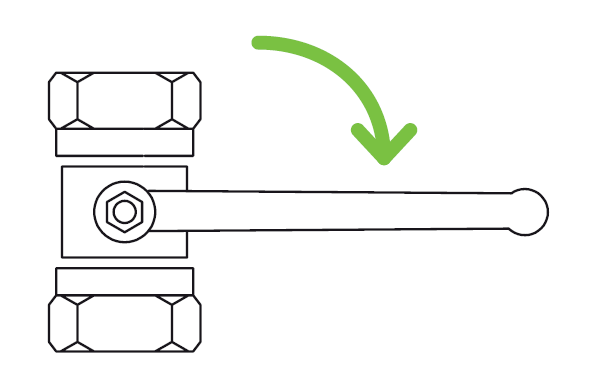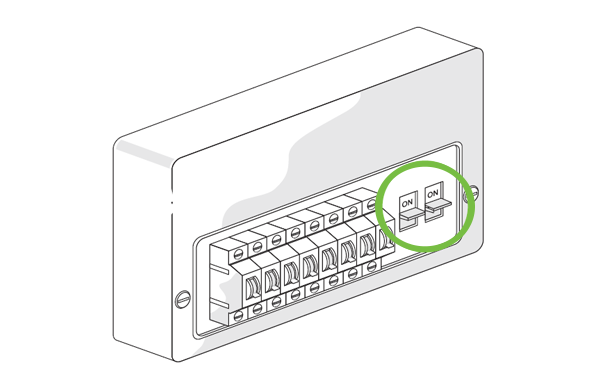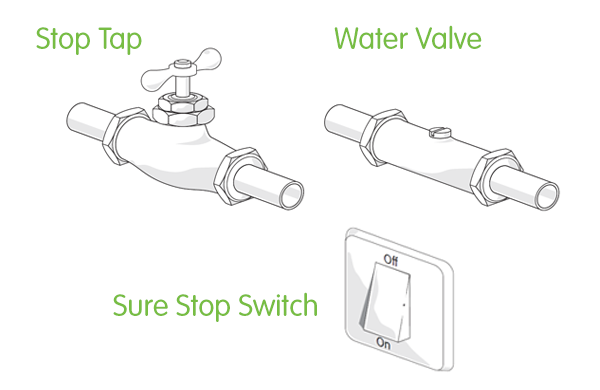Emergency repairs information
What is considered an emergency?
Emergency repairs are those that pose an immediate danger to you or others, or where your home or another home may be damaged if action is not taken straight away. They are not things that are an inconvenience, or which can be contained, or that are not diagnosed as an emergency repair below.
Emergency repairs
Call us on 0800 218 2000 to report emergency repairs.
Examples of emergencies:
- Blocked sewerage drains
- Blocked toilet (where there is only one toilet in the property)
- Gas escapes
- Hazardous electrical faults
- Major leaks or bursts that cannot be contained
- Boarding up broken glass
- Total loss of electrical power or water supply
- Insecure external window or door lock (ground floor)
We will also attend where an immediate Health and Safety risk has been identified, for example, to secure loose objects such as roof tiles or safety rails.
The following are not emergencies:
- Blocked baths, sinks or basins
- Toilets that are not flushing where a bucket of water can be used as a short-term measure
- Loss of lighting to one room including the kitchen or bathroom – a lamp or landing light can be used in the short-term
- Small leaks or drips that can be contained with a bucket or pan in the short-term
- Broken showers
Please be aware that if you knowingly abuse or misuse our emergency service by providing false or exaggerated information to receive emergency attendance we will recharge the cost of the repair and call-out charge to you. We ask our customers to be respectful and understand that by reporting false repairs you are potentially taking away attendance from someone who is in need of emergency assistance.
What should I do in an emergency?
Remain calm and follow the steps below:
- Do not switch on and off any lights or appliances.
- Do not smoke or light matches.
- Open all of your windows.
- Turn off your gas supply by turning the handle to the horizontal position:

- Then exit your home and call the National Grid on 0800 111 999. Remember
to use a telephone outside of your building (even using a mobile phone
could spark an explosion).
You can also call us on 0800 218 2000 if you need assistance.
Do you have an issue with your electrics, such as fittings or appliances sparking, flickering, giving off shocks or no electricity at all?
Remain calm and follow the steps below:
- Turn off the mains switch on your consumer unit – see the diagram below. Turn the two switches off – these are your mains switches.

- If you have a full power cut call your electricity supplier. If you do not know who your supplier is, call Electricity North West by dialling 105.
- If you have any other problems with your electricity you can call us on
0800 218 2000.
Do you have an issue with your water, such as a burst water pipe, no water supply or extremely low pressure?
Remain calm and follow the steps below:
- Turn off your stop tap by turning it to the right or clockwise. Sometimes you may have a stop switch, if you do, press this to turn off your supply and minimise any damage.
- If you need to turn off the water supply to just one item in your home that is leaking such as a toilet or sink you can use the valve that leads to it. This can be turned off or on using an object with a flat end such as a flat screwdriver or a butter knife, and turning it to the right.
- There are some images below to help you identify the valves, stop taps and switches in your home.
- If you have no water in your home and you have checked all the stop taps, switches and valves in your home, call United Utilities on 0345 672 3723.
- If you have a leak within your home call us for assistance on 0800 218 2000 after you have attempted to turn off your water supply.

We recognise that not all emergencies are preventable, but we have put together some top tips to help prevent problems.
Going on holiday?
If you are going on holiday or are going to be away from your home for more than a day we recommend turning off your water supply at the stop tap. If a burst happens whilst you are away it will mean the damage to your home is limited, and during winter, will reduce the risk of your pipes bursting due to them freezing.
Prevent blockages
You may have heard of ‘fat-bergs’, on the TV or in the news, as they are causing trouble across the UK. ‘Fat-bergs’ block our sewer pipes by forming giant boulders of rubbish and fat that have to be carefully removed. You can help prevent unnecessary sewer blockages by only flushing toilet paper.
United Utilities who supply water in the North West of the UK are running a ‘Stop the Block’ campaign. They advise on these tips to help:
- Only natural waste and toilet paper should be flushed.
- Don’t flush wet wipes or cotton buds – please put them in the bin instead.
- Don’t flush cotton buds – put them in the bin too.
- Scrape oils into the bin – wait for them to cool and throw them away – don’t pour them down the sink.
You can get more advice on what you can and can’t put down the toilet on the United Utilities website.
What priority is my repair?
Emergency repairs (up to eight hours response time)
We are open 24/7 and you can report emergency repairs to us on our freephone number 0800 218 2000.
In emergencies we will visit your home as soon as we can but sometimes this can be up to eight hours. You will need to wait at home until we have attended once you have reported the situation.
We may need to revisit to complete the repair. Where another appointment is required this will be made for you and we will send a text and email to confirm the date. You can then amend this appointment via your MySalix account if it is not convenient.
Urgent repairs
If your repair is identified as urgent, this will be classified as a priority and we will aim to offer you an appointment slot within five working days.
You can choose a later appointment if this suits you better. There may be times when demand may exceed appointment availability, where this is the case the earliest available appointment will be displayed and offered to you.
Repairs we consider as urgent are:
- Loss of electrical power to one room/ part of your home
- Loss of water supply to part of your home
- Toilets that don’t flush
- Blocked sink, bath or basin
- Taps which can’t be turned
- A loose or detached banister or handrail
- Minor leaks
- Broken or leaking showers
- Overflowing water from toilets or tanks that are causing damage
- Leaks from baths, showers, basins or sinks that do not leak when not in use
Appointed repairs
Appointed repairs are repairs that are not an emergency, or urgent in nature.
We aim to resolve these repairs as soon as possible, however, these may take up to 60 working days to complete from the job being raised (approximately 2-3 months).
Examples of repairs diagnosed as appointed are:
- Guttering repairs
- Hot water cylinder requiring replacement
- Repairs to a door and where there is no security risk
- Manufactured joinery including doors and frames that need to be made to measure
- Replacement window frames and glazing
- Brickwork repairs including pointing
- Paths
- Uneven flagging (Flagging may be removed and replaced with turf or grass seed)
- Roof work (if no leak)
- Plastering repairs
- Tiling repairs
- Kitchen unit and door repairs
- Bathroom repairs including replacement sinks and toilets
- Partial re-wires and installation of replacement lights or sockets
Your Repairs Handbook

Reporting and booking a repair
How to order and track your repair, and manage your appointment.
Read more
Emergency repairs information
Which repairs are considered an emergency and how we'll respond.
Read more
Repairing responsibilities
Who's responsible for what, and which things you may be charged for.
Read more
Making changes to your home
If you want to make improvements to your home, here's what you need to know.
Read more
